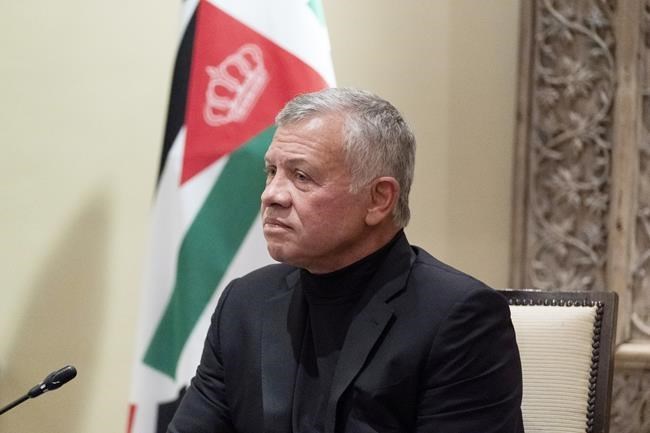AMMAN, Jordan (AP) — Jordan’s King Abdullah II denied Monday any impropriety in his purchase of luxury homes abroad, an effort to contain a budding scandal over reports of lavish spending at a time when he has sought international aid to pull his impoverished country out of recession and help it cope with soaring unemployment.
The come at a delicate time for Abdullah, whose popularity took a hit earlier this year when his half-brother accused the country’s leadership of corruption, and could unsettle Jordan’s critical relationship with the international community. The country is seen as a stable, pro-Western bulwark in a volatile region — but it relies on billions in aid, underscored by the fact that Abdullah was meeting with the president of the World Bank when the report was published.
The purchases were made public by the International Consortium of Investigative Journalists, which reported that hundreds of world leaders, politicians, billionaires, celebrities, religious leaders and drug dealers have been hiding their investments in mansions, exclusive beachfront property, yachts and other assets for the past quarter-century.
Abdullah said he kept quiet about the transactions reported because of security concerns. He also said no public funds were used.
“Any allegations that link these private properties to public funds or assistance are baseless and deliberate attempts to distort facts,” a statement from the Royal Hashemite Court said Monday.
It called any such suggestions “defamatory and designed to target Jordan’s reputation as well as his majesty's credibility.”
But in a sign the palace was concerned by the report, Jordanian media, much of which is directly or indirectly controlled by the palace, made no mention of it. Even independent Jordanian media outlets engage in self-censorship, avoiding criticism of the king, the royal family and the security forces.
The report from the consortium is based on a review of nearly 12 million files obtained from 14 firms located around the world, the consortium said. It is –°¿∂ ”∆µ dubbed the ‚ÄúPandora Papers‚Äù because the findings shed light on the previously hidden dealings of the elite and the corrupt, and how they have used offshore accounts to shield assets collectively worth trillions of dollars.
In the case of Abdullah, the investigation found advisers helped Jordan's king set up at least three dozen shell companies from 1995 to 2017, helping the monarch buy 14 homes worth more than $106 million in the U.S. and the U.K. One was a $23 million California ocean-view property bought in 2017 through a British Virgin Islands company. The advisers were identified as an English accountant in Switzerland and lawyers in the British Virgin Islands.
Abdullah denied there was anything untoward in the purchases, saying security required him to keep the transactions quiet. He said the properties were often used for official functions.
“These properties are not publicized out of security and privacy concerns, and not out of secrecy or an attempt to hide them, as these reports have claimed,” the palace said. “Measures to maintain privacy are crucial for a head of state of His Majesty’s position.”
The statement described the consortium's report on his real estate portfolio as a “flagrant security breach and a threat to His Majesty’s and his family’s safety.”
Later Monday, the king met a number of tribal leaders and dignitaries in central Jordan, where he said attempts to destabilize Jordan's internal affairs hadn't stopped.
“There is a campaign against Jordan, and there are still those who want to sabotage and build suspicions,” he said. “There is nothing to hide.”
Jordan is a key Western ally in the Middle East, where it is seen as a voice of moderation and stability. But its economy has struggled during Abdullah's two-decade reign, hit recently by an influx of hundreds of thousands of refugees from neighboring Syria as well as the coronavirus crisis. Jordan has received billions of dollars in aid from the international community over the years to help stabilize its foundering economy.
The report came as Abdullah was hosting the president of the World Bank, who was on an official visit to discuss the kingdom's economy. Earlier this year, the World Bank announced a $1.1 billion package of loans and grants to assist Jordan in its response to the pandemic, which has sent unemployment spiking to roughly 25%, according to official figures.
Abdullah's government was rocked by a scandal earlier this year when his half-brother, former Crown Prince Hamzah, accused the “ruling system” of corruption and incompetence. The king claimed he was the victim of a “malicious plot,” placed Hamzah under house arrest and put two former close aides on trial.
Hamzah has been seen in public just once since the scandal erupted in April, and he remains out of touch under the king’s “protection.”
Amer Sabeileh, an independent Jordanian analyst, said Sunday’s report did not look good for the king, given the kingdom's widespread economic hardship and the government’s image and credibility problems following the Hamzah affair.
“It comes at a moment when frustration among the people is at a peak, and the government is suffering from a serious shortage of credibility in the whole political system,” he said.
But Labib Kamhawi, another analyst, said it was still too early to draw any conclusions about whether there would be any long-term damage to the king — but it was certain to raise eyebrows internationally.
“It is bound to affect the ability of Jordan to solicit aid easily,” he said. “Business as usual, it will not be the same as long as this information is floating worldwide.”
___
Federman reported from Jerusalem.
Josef Federman And Karin Laub, The Associated Press




